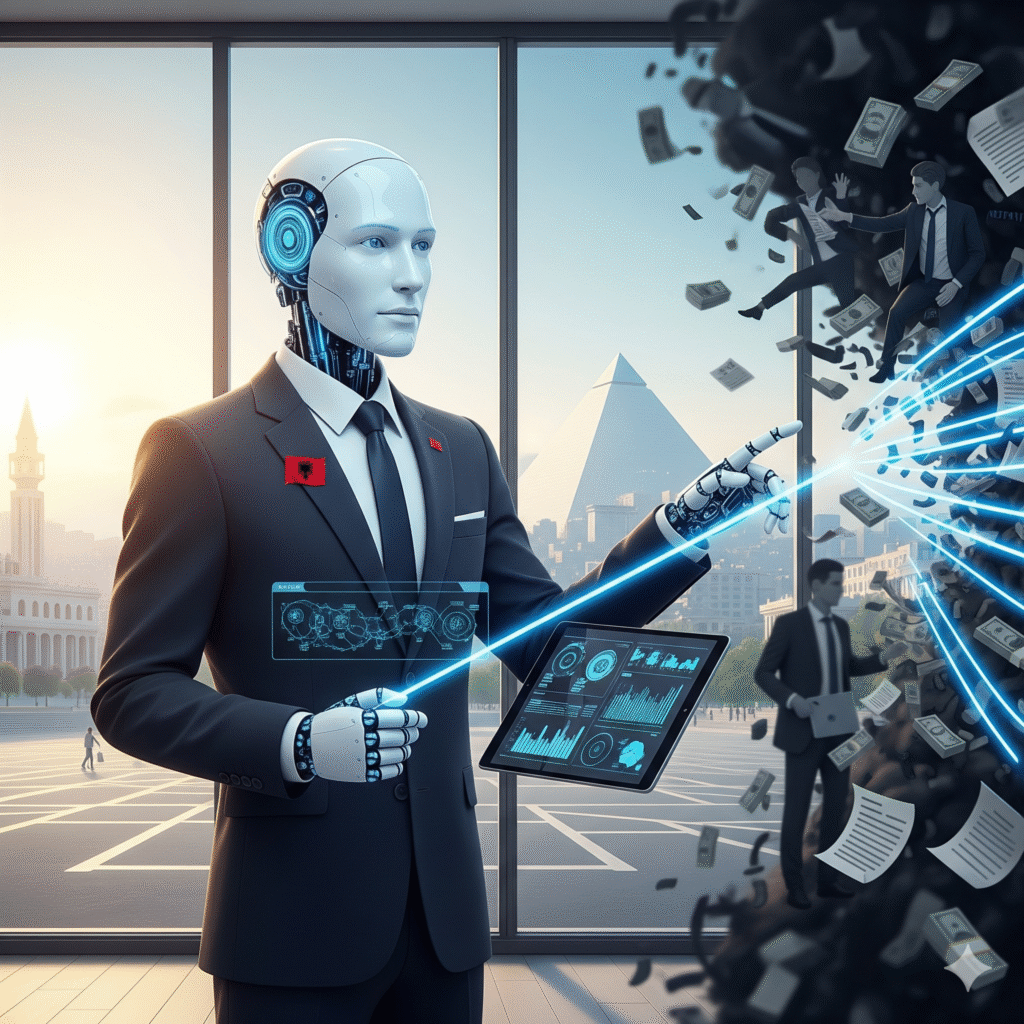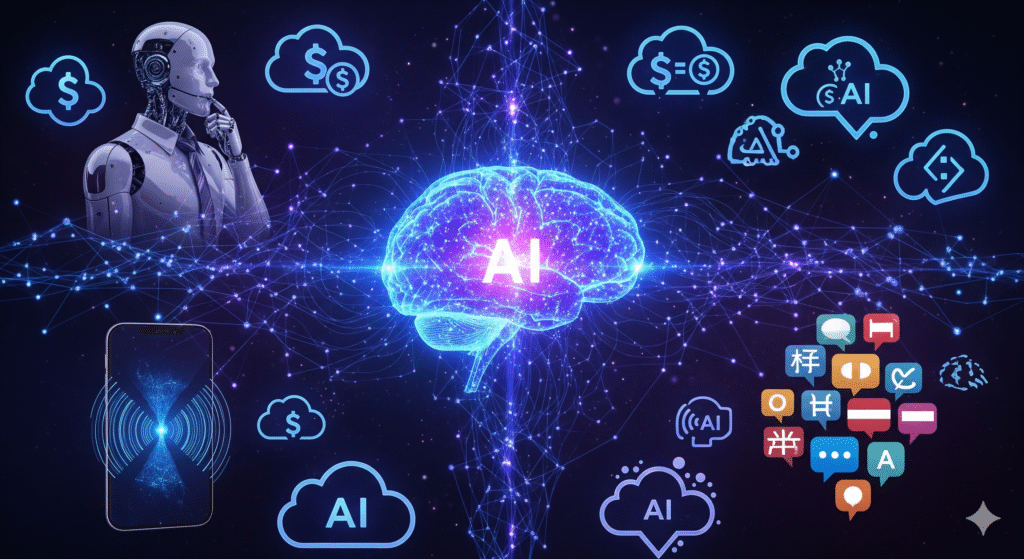In a world where artificial intelligence evolves faster than we can keep up, this week’s AI updates are nothing short of revolutionary. As we hit mid-September 2025, breakthroughs in AI integration, ethics, hardware, and global applications are pushing boundaries. Whether it’s combating corruption or preserving endangered languages, these developments highlight why AI is the driving force of tomorrow. If you’re wondering about the latest AI updates this week, buckle up—these 10 could truly change everything.
1. Albania Introduces World’s First AI Minister to Fight Corruption

In a groundbreaking move, Albania announced plans to appoint an AI as a cabinet minister focused on overseeing public tenders and preventing corruption. This AI “minister” will monitor bidding processes in real-time, using algorithms to detect irregularities and ensure transparency. Why is this mind-blowing? It represents a shift toward AI governance, potentially reducing human bias in politics and setting a precedent for other nations struggling with corruption. Imagine AI holding officials accountable—could this be the future of ethical leadership?
2. Oracle and OpenAI Seal $300 Billion Cloud Deal
Oracle shares surged after announcing a massive $300 billion cloud computing partnership with OpenAI. This deal will provide the infrastructure needed to scale AI models, enabling faster training and deployment of advanced systems. The mind-blowing aspect? It underscores the enormous economic scale of AI, with Oracle’s Larry Ellison now rivaling Elon Musk in wealth rankings. This could accelerate AI adoption across industries, from healthcare to finance, making hyper-advanced tools accessible to more businesses.
3. OpenAI to Launch Custom AI Chip in 2026 with Broadcom
OpenAI revealed a collaboration with Broadcom to produce its first dedicated AI chip by 2026. Designed specifically for AI workloads, this chip aims to reduce dependency on existing hardware giants like NVIDIA. What’s mind-blowing here is the potential for optimized, cost-effective AI processing that could democratize access to powerful models. No more bottlenecks in AI development—this could spark a new era of innovation, especially for startups and researchers.
4. FTC Probes AI Chatbots’ Impact on Children
The U.S. Federal Trade Commission (FTC) launched an inquiry into how AI chatbots from companies like OpenAI, xAI, Meta, Snap, and Alphabet affect children. Concerns include privacy, mental health, and potential exploitation. This update is mind-blowing because it signals growing regulatory scrutiny on AI’s societal effects, potentially leading to new laws that shape how AI interacts with vulnerable users. As AI becomes ubiquitous in education and entertainment, this could redefine child safety in the digital age.
5. Google Rolls Out App for Running AI Models Directly on Smartphones

Google introduced a new app available on the Play Store that allows users to run AI models entirely on their smartphones, now with added voice functionality support. This bypasses the need for cloud processing, enhancing privacy and speed. Mind-blowing? It brings sophisticated AI capabilities to everyday devices without internet dependency, paving the way for offline AI assistants, real-time translations, and more. The era of truly personal AI is here.
6. AI Steps In to Preserve Endangered Indigenous Languages
With one Indigenous language dying every two weeks, technologists are using AI to document and revive them. Tools analyze audio, generate learning resources, and even simulate conversations in these languages. This week’s spotlight on such efforts is mind-blowing as it shows AI’s potential for cultural preservation, combating the loss of global heritage. From revitalizing Native American dialects to Pacific Islander tongues, AI could ensure linguistic diversity survives in a digital world.
7. New ‘RSL’ License Standard Emerges for AI Content
A coalition including O’Reilly Media and Reddit launched the Responsible Sourcing License (RSL), a new framework for ethically licensing content used in AI training. It emphasizes transparency and fair compensation for creators. Why mind-blowing? Amid debates on AI data scraping, this could standardize ethical AI development, reducing lawsuits and fostering trust. It’s a step toward sustainable AI that respects intellectual property.
8. U.S. Space Force Embeds AI Across Mission-Critical Workflows
The U.S. Space Force plans to integrate AI tools into routine and high-stakes operations, enhancing decision-making in space defense and exploration. This includes predictive analytics for satellite threats and automated mission planning. Mind-blowing? AI in space ops could revolutionize military and civilian space tech, from faster threat detection to efficient Mars missions. The final frontier just got smarter.
9. Stanford Study Reveals AI’s Job Impact on Young Workers
A Stanford Digital Economy Lab report highlighted a sharp decline in employment for 22- to 25-year-olds in AI-exposed roles like software development and customer service. This week’s data drop is mind-blowing as it quantifies AI’s disruptive force on the workforce, urging reskilling programs. While AI creates new jobs, it could reshape career paths for generations, emphasizing the need for adaptive education systems.
10. Adobe Accelerates AI Adoption in Global Enterprises
Adobe announced rapid uptake of its AI innovations by major enterprises, powering growth in content creation and marketing. Features like generative AI for design are being embedded in workflows worldwide. Mind-blowing? This signals AI’s maturation from hype to essential business tool, potentially transforming creative industries. With tools that automate complex tasks, productivity could skyrocket, changing how we work creatively.
These AI updates this week aren’t just incremental—they’re transformative, touching governance, economy, culture, and beyond. As AI continues to evolve, staying informed is key to navigating this exciting future. What do you think will have the biggest impact? Share in the comments!
What’s Next for AI? Things to Look Forward To
As AI continues its rapid evolution, here are key developments to watch in the coming weeks and months:
- Global AI Governance Standards: With Albania’s AI minister setting a precedent, expect more countries to experiment with AI in public administration, potentially leading to international frameworks by early 2026.
- AI Hardware Race: OpenAI’s 2026 chip launch with Broadcom could spark a wave of custom AI hardware, reducing costs and boosting accessibility for smaller firms.
- Regulatory Shifts: The FTC’s investigation may lead to new AI regulations by mid-2026, especially for child safety and data privacy, influencing global standards.
- Cultural Preservation Surge: AI-driven language preservation efforts are likely to expand, with new tools expected at tech conferences like CES 2026, amplifying Indigenous voices.
- Workforce Transformation: As AI’s job impact grows, anticipate a surge in reskilling programs and AI-specific education tracks by Q2 2026 to prepare workers for an AI-driven economy.
Conclusion
The AI updates this week in September 2025 demonstrate the technology’s unstoppable momentum, reshaping governance, industry, culture, and beyond. From Albania’s AI minister combating corruption to Google’s on-device AI revolution, these advancements signal a future where AI is seamlessly integrated into daily life. Yet, with great power comes great responsibility—ethical concerns like those raised by the FTC’s probe and workforce disruptions highlighted by Stanford remind us to balance innovation with caution. These developments aren’t just headlines; they’re a glimpse into a world where AI drives progress while challenging us to adapt.
FAQs
What are the latest AI updates this week in September 2025?
This week’s highlights include Albania’s AI minister, massive cloud deals like Oracle-OpenAI, and AI for language preservation, among others detailed above.
How is AI changing governance?
Innovations like Albania’s AI cabinet member show how AI can monitor public processes to reduce corruption, potentially influencing global politics.
What ethical concerns are arising from AI updates?
The FTC’s probe into AI chatbots for children addresses privacy and mental health, while new licenses like RSL aim to ensure fair content use in AI training.
Can AI run on smartphones without the cloud?
Yes, Google’s new Play Store app allows on-device AI model execution, boosting privacy and enabling offline capabilities.
How is AI impacting jobs according to recent studies?
Stanford’s research shows declining employment for young workers in AI-vulnerable roles, highlighting the need for workforce adaptation.
Will AI help preserve cultures?
Absolutely—AI tools are being used to document and revive Indigenous languages, preventing their extinction and maintaining cultural diversity.


